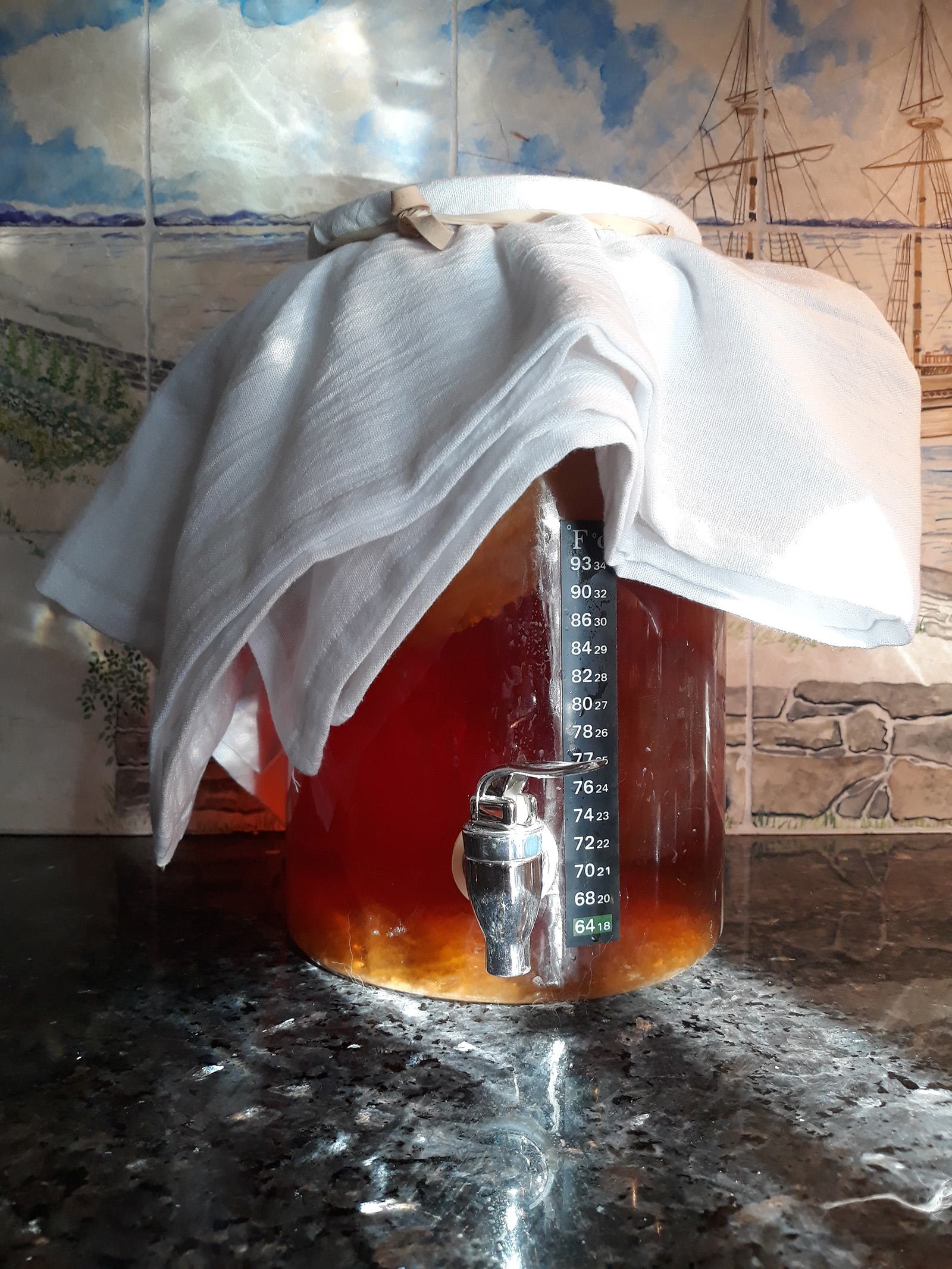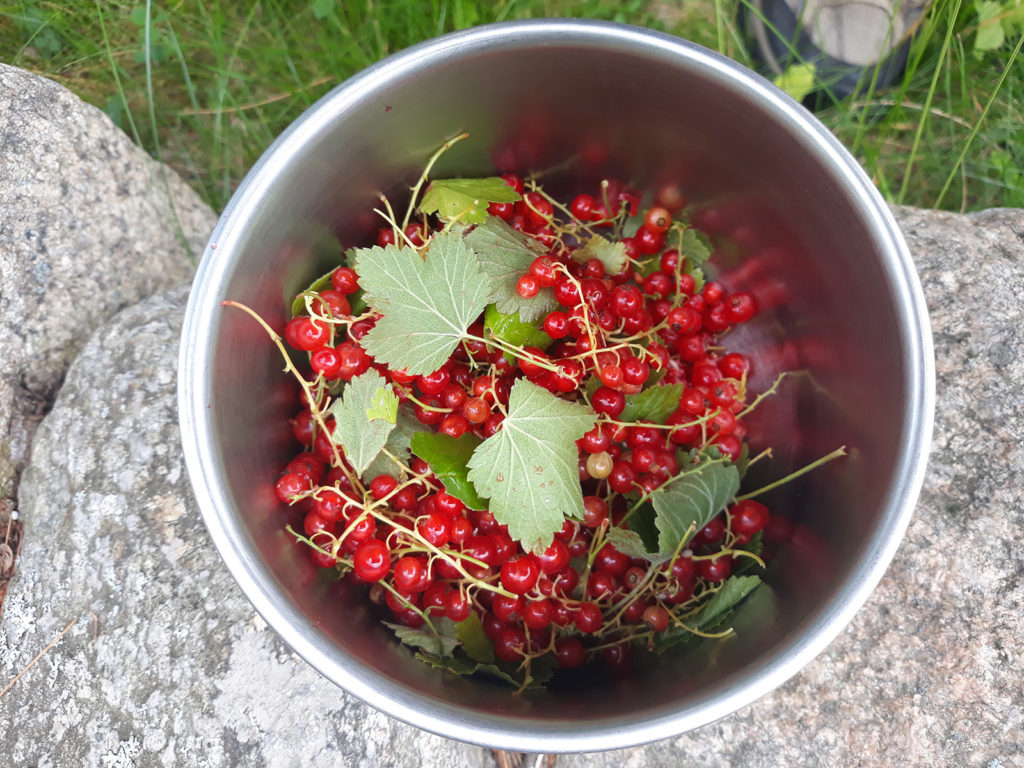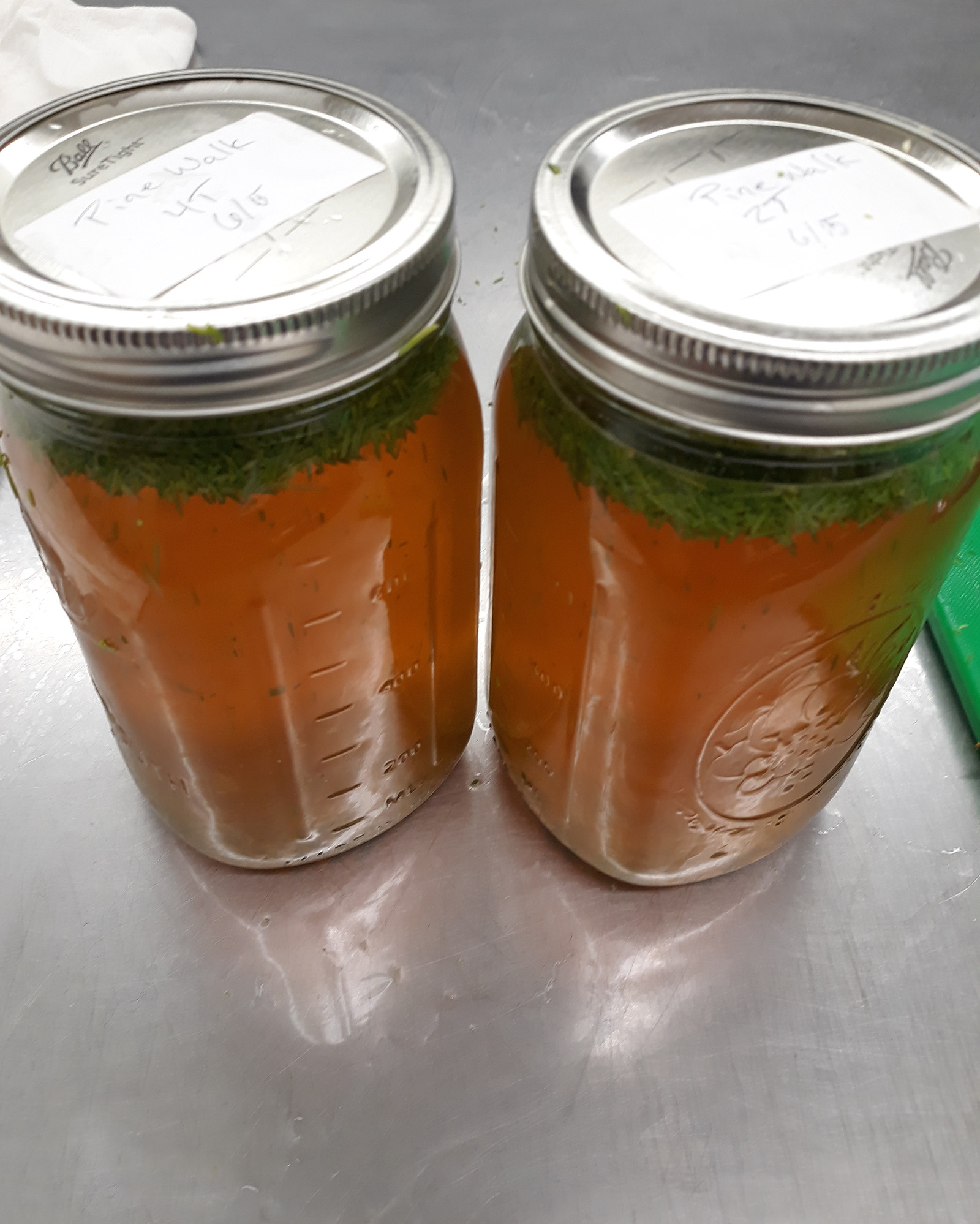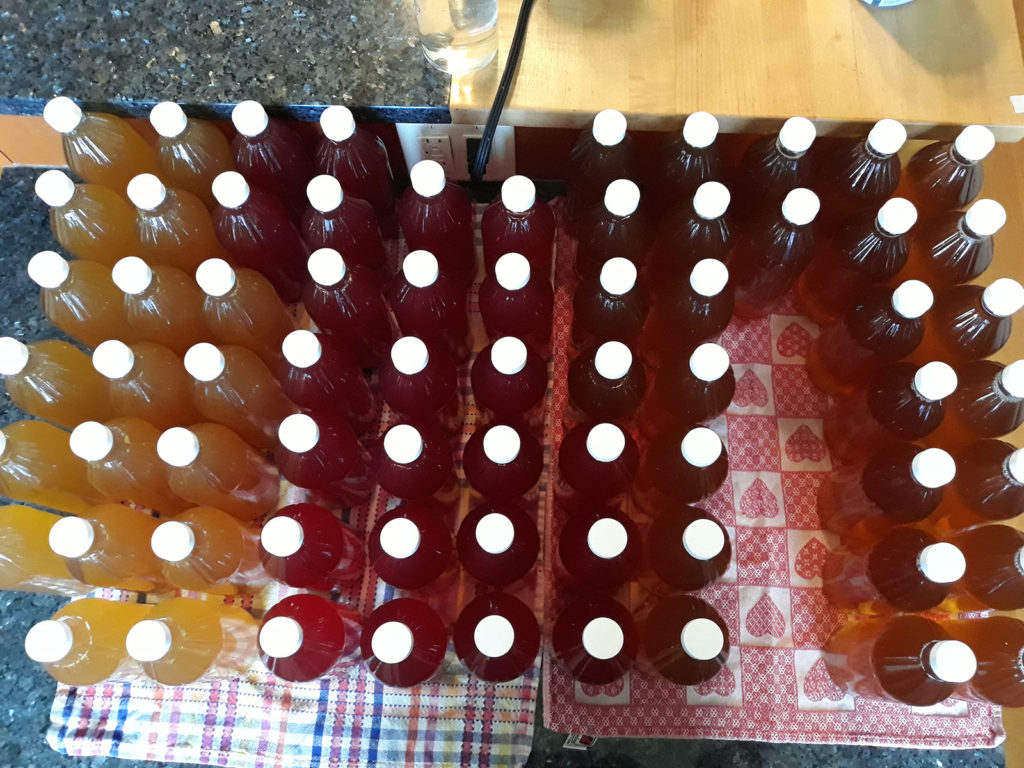Kombucha is an ancient drink, thought to originate in Asia. Its first recorded references are from around 220 BCE when a doctor from the Korean Peninsula took it across the Sea of Japan to the imperial Japanese court to serve the emperor. He called it “immortality tea.” From there, kombucha travelled across the globe and through the centuries. You need kombucha to make kombucha — it’s a culturing fermentation like sourdough bread or yogurt. So all kombucha today has a little of that ancient immortality tea in it.
Kombucha is tea. A little existing kombucha, which is full of beneficial yeast and bacteria, is sweetened with sugar to kickstart fermentation. The yeast eat through the tea, transforming the sugar into ethanol and carbon dioxide and breaking down tannins, antioxidants, and nutrients to make them bioavailable for human digestive systems. The bacteria consume the ethanol, converting it into healthy acetic acids. This symbiotic cycle continues until the tea and sugars are transformed into kombucha.


The microorganisms (yeast and bacteria) are beneficial additions to our body’s microbiome. They aid digestion and the absorption of nutrients. The acetic acids help fight inflammation, reduce blood pressure, kill invasive bacteria, and encourage weight loss. It packs a powerful punch!
Fieldstone’s kombucha is special because I focus so strongly on fresh, local ingredients. The business is part of an integrated local food system delivering quality products with high nutrient density. The kombucha isn’t carbonated, but is naturally effervescent. Fermentation is halted at an ideal stage to provide the best health benefits and drinking experience.

